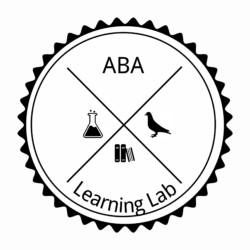Angela Nelson, MS, BCBA. Executive Director of Family and Clinical Services, Rethink.
If you have a child with a disability, you’ve probably heard the word Advocacy. Whether you’re a seasoned expert, or just recently heard the word, what does it mean exactly? If you look it up online or in the dictionary, you’ll probably see something like “standing up for someone…especially regarding their rights….to speak or argue in favor of…etc.” If you dig a little further, you’ll see there are different types of advocates- lay advocates, educational advocates, lawyers who focus in special education advocacy, even educators sometimes view themselves as advocates. The most important types of advocates, however, are parents. You are the expert on your child!
You will always have the best interest of your child in mind and in many cases, you’re the most central player in navigating the various institutions (e.g., school, healthcare, disability insurance, etc.). You likely hold the most comprehensive information about your child’s abilities, challenges, medical background, needs, and future aspirations across all environments and therefore, you can’t afford to be timid or assume others will know what’s best for your child. It will likely be up to you to pursue an IEP or special education placement, insurance funding for services, and even potential supports for adulthood. This may seem like a lofty task, and in many cases, it can be, so here are a few tips to help you organize your advocacy process (for more information, see references below):
1. Set your goals-
Know what you want before walking into a meeting. How will you know those goals are achieved? You are more likely to be successful if you are clear and direct about what you want.
2. Gather your information-
Research the facts needed to support your argument, learn the laws, your rights, the rights of your child, etc.
3. Prepare for the rebuttal-
Do you know what the counterargument will be and are you prepared to address that? Can you understand their perspective so you’re able to be collaborative in the discussion?
4. Prepare to be objective, not emotional-
Having a rational argument can help keep things moving along. You may have to work with those to whom you’re advocating on a regular basis and preserving the relationship is key.
5. Know to whom you should advocate-
Go to the proper parties to get your case heard and don’t waste time going back and forth with those who lack the authority to grant decisions
6. Present your case and be prepared for alternative solutions-
Some negotiation may be needed so be open to various possibilities that could also be amenable to both parties.
Self-Advocacy
One of the most important aspects of your role as an advocate for your child is to teach him or her self-advocacy skills. This is a process that can start in childhood. For a younger child or someone more severely impacted by their disability, it may be something as basic as teaching choice making or communicating wants/needs (either verbally, with pictures, signs, a voice-output device, etc.). For someone with more abilities, they could even follow the aforementioned six steps to advocate their own case about school placement, for example. Teaching autonomy, making sure your child knows him/herself and what their needs really are, knowing when to step back and let him/her take the lead, and supporting their independence are a few ways you can facilitate self-advocacy. There are also many organizations that individuals with disabilities can join to exercise these skills and network with other self-advocates (e.g., http://www.selfadvocacyonline.org/, http://www.autism-society.org/).
Advocacy is an important word in our community. Thanks to the work of so many dedicated parents, goals are being fulfilled, wants and needs are being listened to, rights are being upheld, and individuals with disabilities are learning how to be independent, decision-makers for themselves. Let us know in the comments section below what you’ve found to be helpful in your role as an advocate!
References:
Krebs, B., & Pitcoff, P. (2006). On Your Own As A Young Adult:
Self-Advocacy Case Studies. St. Paul, MN: JIST Publishing.
Shalof, A. (2013). The ABC’s of Basic Advocacy and Negotiation
Skills. Retrieved from https://www.autismspeaks.org/
sites/default/files/docs/abcs_of_basic_advocacy_and_negotiation_
skills.pdf
Wright, P., & Wright, P. (2006). Wrightslaw: From Emotions To
Advocacy: The Special Education Survival Guide. Hartfield, VA:
Harbor House Law Press, Inc.

